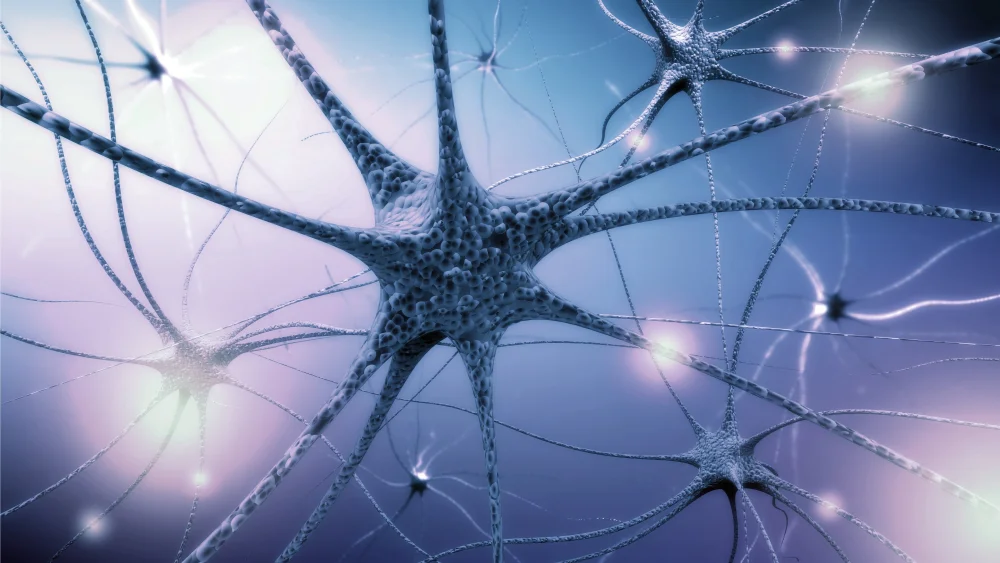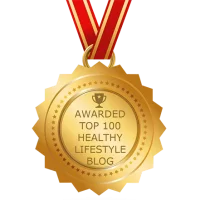The autonomic nervous system (ANS) is a complex and essential part of the human body responsible for regulating various involuntary functions, such as heart rate, digestion, respiratory rate, and many others. It consists of two complementary branches, the sympathetic nervous system (SNS) and the parasympathetic nervous system (PNS), which work together to maintain homeostasis. In response to environmental and lifestyle demands, the homeostatic processes that naturally balance the sympathetic and parasympathetic nervous systems are often compromised. As a result, patients may experience an increase in the sympathetic nervous system (SNS)’s functions and a decrease in the parasympathetic nervous system (PNS)’s functions. This is known as disbalance or dysautonomia and can manifest as a variety of symptoms.
As a holistic cardiologist, Dr. Cynthia Thaik educates patients on the importance of balancing the sympathetic and parasympathetic nervous systems for heart health and overall well-being. In this article, we’ll explore the functions of the SNS and PNS systems, the importance of balance between them, and how to rebalance the ANS from nutritional, physical activity, lifestyle, and emotional perspectives. We’ll also delve into various proven modalities for treatment, including pharmaceuticals, supplements, osteopathic or chiropractic manipulation, and energy medicine.
Understanding the Sympathetic and Parasympathetic Nervous System
Exploring the sympathetic and parasympathetic nervous systems is like peeking behind the scenes of how our bodies handle stress and rest. These two parts of our “automatic” nervous system control things like heart rate, digestion, and how we react to different situations.
The Sympathetic Nervous System (SNS) is often referred to as the “fight or flight” system, as it prepares the body for stressful or threatening situations. When activated, the SNS releases adrenaline and noradrenaline. These hormones are responsible for increasing heart rate, dilating pupils, diverting blood flow to the muscles, and temporarily suppressing non-essential functions like digestion. When you’re scared or stressed suddenly, your body quickly releases adrenaline. This response evolved to help our ancestors survive imminent dangers by enhancing physical abilities and alertness.
In contrast, the Parasympathetic Nervous System (PNS), is known as the “rest and digest” system, as its main function is to promote relaxation and conserve energy. It could be called your “automatic” nervous system, because it’s responsible for many functions that you don’t have to think about to control. Your PNS’s job is usually to relax or reduce your body’s activities. When activated, the PNS slows heart rate, constricts pupils, stimulates digestion, and allows the body to recuperate and heal. The PNS releases a neurotransmitter called acetylcholine (ACh), a key player in transmitting signals between nerve cells and the target cells they communicate with, such as muscle cells or other nerve cells.
Dysautonomia: Autonomic Nervous System Disbalance
While the SNS and PNS are designed to work together, the modern lifestyle, with chronic stress, sedentary behavior, poor dietary choices, and emotional strain, often leads to ANS imbalance. Imbalanced ANS can result in various health issues. These can include cardiovascular problems, digestive disorders, sleep disturbances, and even mental health disorders. This condition is known as dysautonomia. One common sign of dysautonomia is orthostatic intolerance, which means you can’t stand up for long, without feeling faint or dizzy.
Dysautonomia can affect ANS functions including:
- Blood pressure.
- Breathing.
- Digestion.
- Heart rate.
- Kidney function.
- Pupil dilation and constriction in the eyes.
- Sexual function.
- Body and skin temperature control
Balancing the Autonomic Nervous System
While ANS disbalance is fairly common, and affects over 70 million people worldwide, there are several methods to improve the function of the autonomic nervous system. Balancing the ANS from a nutritional, physical activity, lifestyle, and emotional standpoint requires a comprehensive approach that addresses various aspects of daily life. Let’s review the various proven modalities for balancing the ANS, including pharmaceuticals, supplements, osteopathic or chiropractic manipulation, and energy medicine:
Nutritional Balance And ANS Balance
As with many health and wellness practices, balancing the ANS starts with balancing your nutrition. When we nourish our bodies, we provide the foundation for optimal autonomic nervous system function, supporting both the sympathetic and parasympathetic branches to work harmoniously and promote homeostasis.
- Balanced Diet: Nutrition, and more specifically dietary lipids, activate the autonomic nervous system. A balanced diet that includes a variety of whole foods is essential for ANS health. Consume a wide range of fruits, vegetables, whole grains, lean proteins, and healthy fats. Avoid excessive consumption of processed foods, refined sugars, and unhealthy fats.
- Limit Stimulants: Reduce or avoid excessive caffeine and excessive sugar intake. It can overstimulate the sympathetic nervous system and lead to increased anxiety, increased heart rate and insomnia.
- Increase Omega-3 Fatty Acids: Incorporate sources of omega-3 fatty acids, such as fatty fish (salmon, mackerel), flaxseeds, chia seeds, and walnuts. Omega-3s have anti-inflammatory properties and may support ANS balance. Omega-3 fatty acids, particularly eicosapentaenoic acid (EPA) and docosahexaenoic acid (DHA), have been studied for their anti-inflammatory properties. Reducing inflammation improves ANS function and better overall health. A meta-analysis published in the Journal of the American College of Nutrition in 2012 found that omega-3 supplementation reduced markers of inflammation, including C-reactive protein (CRP) and interleukin-6 (IL-6).
- Incorporate Magnesium-Rich Foods: Magnesium is crucial for muscle and nerve function. On a chemical level, magnesium helps to activate the parasympathetic nervous system. Including magnesium-rich foods like leafy greens, nuts, seeds, whole grains, and legumes in your diet can help relax muscles and promote PNS activity.
- Hydration: Water has a powerful physiological effect on your body, by triggering the parasympathetic nervous system. Drink an adequate amount of water daily to support overall body function, including ANS regulation. We should aim to consume 70% of our body weight in ounces.
Using Physical Exercise To Rebalance the ANS
- Engage in Moderate Exercise: Regular physical activity, such as walking, swimming, yoga, and tai chi can stimulate the ANS and reduce SNS dominance. Regular physical activity has been shown to positively influence the ANS by promoting parasympathetic activity and improving heart rate variability (HRV). A study published in the International Journal of Sports Medicine in 2018 found that aerobic exercise training significantly increased HRV, indicating improved ANS balance. Engage in regular physical activity that suits your fitness level and preferences. Incorporate cardiovascular exercises to improve heart health and enhance the parasympathetic nervous system’s function. Strength or resistance training can contribute to better muscle function and overall body stability, potentially supporting ANS regulation. Include stretching exercises to improve flexibility and alleviate muscle tension, promoting relaxation.
- Practice Deep Breathing: Deep breathing exercises and meditation activate the PNS and promote relaxation. The parasympathetic nervous system and breathing are connected through the body’s vagus nerve and fight-or-flight response, and diaphragmatic breathing activates the parasympathetic nervous system.
- Prioritize Sleep: Ensure adequate and restful sleep, as it allows the body to repair and rebalance the ANS. Sleep deficits cause over-activity in the stress response systems, thus contributing to ANS disbalance. Aim to obtain at least 8 hours of restful sleep nightly. Quality sleep plays a crucial role in ANS balance and overall well-being.
Lifestyle Changes to Rebalance the ANS
Rebalancing the Autonomic Nervous System (ANS) involves adopting lifestyle changes that promote a healthier equilibrium between the sympathetic and parasympathetic branches. Here are some lifestyle adjustments that can help achieve this balance:
- Manage Stress: Implement stress-reduction techniques like mindfulness, meditation, deep breathing exercises, or progressive muscle relaxation, along with spending time in nature, or pursuing hobbies to decrease SNS activity. These stress reduction techniques activate the parasympathetic nervous system and reduce sympathetic activity. A study published in the Journal of Human Hypertension in 2019 demonstrated that practicing deep breathing exercises significantly decreased blood pressure and heart rate, indicating increased parasympathetic activity.
- Social Support: Cultivate positive social connections and maintain a supportive network, as healthy relationships can positively impact emotional well-being and ANS regulation. Social support is exceptionally important for maintaining good physical and mental health. Having friends, family members, or peers who listen, empathize, and provide emotional validation can help reduce stress, anxiety, and feelings of loneliness.
- Limit Screen Time: Constant exposure to devices like smartphones, personal computers, and television can increase stress and anxiety and cause various sleep issues. Exposure to electronic devices and blue light before bedtime can affect your sleep quality and prevent your body from recovering properly at night.
Your Emotions and Your Autonomic Nervous System
The interaction between emotions and the Autonomic Nervous System (ANS) is a two-way street. Our emotional state can influence the activity of the ANS. Conversely, the ANS can impact our emotional well-being. Developing positive coping skills and emotional resilience can help you gain control over your body’s stress response.
- Seek Emotional Therapy: Talk therapy or counseling can help address underlying emotional issues and promote ANS balance. Develop emotional awareness and practice recognizing and processing emotions in a healthy way.
- Practice Gratitude: Cultivate gratitude through journaling or mindfulness to foster a positive emotional state. When we express or receive gratitude, the brain releases dopamine and serotonin, two crucial neurotransmitters responsible for our emotions. Dopamine is a key player in the Autonomic Nervous System, responsible for allowing you to feel pleasure, satisfaction and motivation. When you feel good that you have achieved something, it’s because you have a surge of dopamine in the brain.
- Engage in Mindful Practices: Engaging in mindfulness practices, with activities like yoga and meditation can help promote emotional balance and support ANS regulation. Research studies have shown that mindfulness meditation can positively influence the ANS by increasing parasympathetic activity and decreasing sympathetic activity. A systematic review published in the Journal of Alternative and Complementary Medicine in 2016 concluded that mindfulness-based interventions were effective in reducing sympathetic nervous system activity and increasing parasympathetic nervous system activity, leading to improvements in heart rate variability (HRV) and overall ANS balance.
Balancing The ANS With Pharmacological and Integrative Treatments
Your healthcare practitioner may recommend pharmacological and/or integrative therapies to help balance your ANS.
Pharmaceutical interventions can be a key component of managing certain autonomic nervous system (ANS) disorders and related symptoms. Physicians may prescribe medications to help regulate sympathetic and parasympathetic activity, address specific ANS dysfunctions, and alleviate associated symptoms. Some common medications used in ANS-related conditions include:
- Beta-Blockers: These drugs block the effects of adrenaline and noradrenaline on the heart and blood vessels, reducing sympathetic activity. They are commonly prescribed for conditions like hypertension, anxiety, and certain heart conditions.
- Alpha-Blockers: These medications block the action of certain sympathetic receptors, leading to vasodilation and decreased blood pressure. They are used in conditions like hypertension and some peripheral vascular disorders.
- Anticholinergic Drugs: These drugs inhibit the action of the parasympathetic nervous system. They may be prescribed for conditions where increased sympathetic activity is desired, such as in bradycardia or certain urinary disorders.
Individuals using pharmaceutical interventions must do so under the guidance of a qualified healthcare professional. These medications can have side effects and interactions with other drugs. Always consult your physician or healthcare professional before making any changes to your medications regimen.
Supplements to Balance the ANS
Your healthcare practitioner may recommend supplements as a complementary approach to support ANS balance. Some supplements have shown potential in positively influencing ANS function, reducing stress, and promoting relaxation. It’s important to remember that supplements should not replace a balanced diet or prescribed medications. Here are a few supplements that have been studied in relation to ANS support:
- Ashwagandha: An adaptogenic herb known for its stress-reducing properties and potential to support the body’s resilience to stressors. Ashwagandha is classified as an adaptogen, a substance that helps the body cope with stress.
- L-Theanine: This amino acid found in green tea creates calming and relaxing effects.
- Magnesium: as mentioned in the Nutrition section above, magnesium is a mineral involved in numerous bodily processes, including muscle relaxation and nerve function. Magnesium deficiency can lead to health problems including high blood pressure and heart disease.
As with any supplement, consult with your healthcare provider before starting any new regimen. This is especially true if you are taking other medications or have underlying health conditions.
Osteopathic or Chiropractic Manipulation May Help Balance the ANS
Osteopathic and chiropractic manipulation are manual therapies that focus on musculoskeletal alignment and function. These therapies aim to address structural imbalances that may impact the nervous system, including the ANS. By correcting misalignments, practitioners believe they can improve nerve function and promote overall health. Some conditions that may benefit from osteopathic or chiropractic manipulation include:
- Neck and Back Pain: Misalignments in the spine can cause pain and discomfort. Correcting them may alleviate pressure on nerves that influence the ANS.
- Headaches: Certain types of headaches may be associated with cervical spine misalignments, and manipulation could provide relief.
It is very important to seek qualified practitioners with appropriate training and experience in osteopathic or chiropractic care, as improper manipulation can lead to adverse effects.
Energy Medicine To Promote ANS Balance
Energy medicine modalities aim to influence the body’s energy flow to promote healing and balance. Though scientific evidence for these modalities is limited, some individuals report positive experiences. Two commonly mentioned energy medicine modalities are:
- Acupuncture: This traditional Chinese medicine practice involves the insertion of thin needles into specific points on the body to stimulate energy flow and promote balance. An increasing number of studies have demonstrated that acupuncture can improve ANS functions.
- Reiki: This form of energy healing involves the transfer of universal energy from a practitioner to a recipient, intending to promote relaxation and facilitate healing. Reiki has been found to activate the parasympathetic nervous system. It therefore lowers cortisol levels, reducing the experience of neurophysiological stress or perceived stress
Energy medicine should be viewed as complementary to conventional medical treatments. Individuals seeking these modalities should ensure they are provided by qualified and reputable practitioners.
Each modality mentioned in this article presents unique approaches to potentially rebalancing the autonomic nervous system and promoting overall well-being. However, individual responses to these interventions may vary. What works for one person may not be as effective for another. It’s always best to consult with qualified healthcare professionals who can provide personalized guidance and develop a comprehensive treatment plan based on individual needs and circumstances. Combining these modalities with lifestyle changes, stress management techniques, and other evidence-based interventions can contribute to a holistic approach to supporting ANS health and improving overall quality of life.
An Integrated Approach To Balancing the ANS
The autonomic nervous system is a delicate and critical system that regulates numerous bodily functions. Adopting a holistic approach that includes nutritional, physical, lifestyle, and emotional interventions can contribute significantly to ANS rebalancing.
Dr. Cynthia Thaik, MD, is a Harvard-trained, holistic cardiologist who practices with her heart. She helps replace stress, fear, and anxiety in patients by instilling a sense of inner calm and peace. She educates and inspires clients to take proactive steps towards health and healing. Her team has helped thousands of people transform their lives through the ways they think, feel, and act. Committed to holistic cardiology, Holistic Healing Heart Center is a sought-after destination for optimal heart health in Burbank, CA. If you have concerns about Autonomic Nervous System disbalance, contact Holistic Healing Heart Center to schedule a consultation today.
Reference: Calder PC. (2012). Omega-3 polyunsaturated fatty acids and inflammatory processes: Nutrition or pharmacology? British Journal of Clinical Pharmacology, 75(3), 645-662. Reference: Malfatto G, et al. (2018). Effects of Aerobic Training on Heart Rate and Heart Rate Variability in Subjects without Cardiovascular Disease: A Systematic Review and Meta-analysis. International Journal of Sports Medicine, 39(3), 186-203 Reference: Zhang J, et al. (2016). The Effect of Mindfulness Meditation on the Autonomic Nervous System in Chronic Pain Patients. Journal of Alternative and Complementary Medicine, 22(2), 161-168. Reference: de Zambotti M, et al. (2019). Deep Breathing Increases Heart Rate Variability and Attenuates Blood Pressure Responses to Stress in the Daily Life of Older Adults. Journal of Human Hypertension, 33(1), 50-56.





